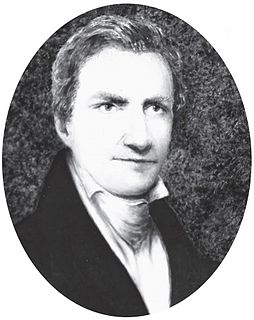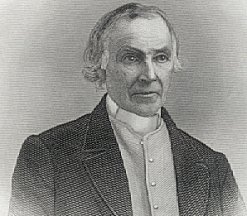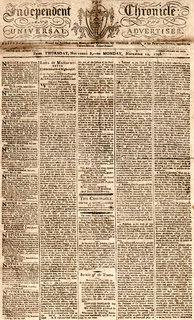Related Research Articles

Matthew Lyon was an Irish-born American printer, farmer, soldier and politician, who served as a United States Representative from both Vermont and Kentucky.
John Holt (1721—1784) was a colonial American newspaper publisher, printer, postmaster, and mayor of Williamsburg, Virginia, United States. He was involved with publishing the Connecticut Gazette, the New York Gazette, and the New-York Journal newspapers. He worked with Benjamin Franklin, the prominent publisher James Parker, and Founding Father Samuel Adams. He had a store that sold miscellaneous supplies, ink, paper, and books on a variety of subjects including religion, freemasonry, economics, history, archaeology, poetry, and biographies.

The Boston Gazette (1719–1798) was a newspaper published in Boston, in the British North American colonies. It was a weekly newspaper established by William Brooker, who was just appointed Postmaster of Boston, with its first issue released on December 21, 1719. The Boston Gazette is widely considered the most influential newspaper in early American history, especially in the years leading up to and into the American Revolution. In 1741 the Boston Gazette incorporated the New-England Weekly Journal, founded by Samuel Kneeland, and became the Boston-Gazette, or New-England Weekly Journal. Contributors included: Samuel Adams, Paul Revere, Phyllis Wheatley.

John Denison Baldwin was an American politician, Congregationalist minister, newspaper editor, and popular anthropological writer. He was a member of the Connecticut State House of Representatives and later a member of the U.S. House of Representatives from Massachusetts.
The Boston Weekly Advertiser (1757–1775), also called The Boston Post-Boy & Advertiser was a weekly newspaper published in Boston, Massachusetts by John Green (1727–1787) and Joseph Russell (1734–1795).

The Independent Chronicle (1776–1840) was a newspaper in Boston, Massachusetts. It originated in 1768 as The Essex Gazette (v.1–7) in Salem, and The New-England Chronicle (v.7–9) in Cambridge, before settling in 1776 in Boston as The Independent Chronicle. Publishers included Edward E. Powars, Nathaniel Willis, and Adams & Rhoades; Capt. Thomas Adams (ca.1757–1799) was the editor prior to his death in 1799. For some time it operated from offices on Court Street formerly occupied by James Franklin. As of the 1820s, "the Chronicle [was] the oldest newspaper ... published in Boston; and has long been considered one of the principal republican papers in the state; and its influence has, at all times, been in exact proportion to the popularity of the cause which it has so warmly espoused." After 1840 the paper continued as the Boston Semi-weekly Advertiser published by Nathan Hale.

William Goddard was an early American patriot, publisher, printer and postal inspector. Born in New London, Connecticut, Goddard lived through the American Revolutionary era, during which he opposed British rule of the colonies through his actions and publications. He was a major figure in the development of the colonial postal system, which became the U.S. Post Office after the American Revolution.

Samuel Kneeland (c.1696–1769) was an American printer and publisher of The Boston Gazette and Weekly Journal. Kneeland obtained much of his work printing laws and other official documents for the Province of Massachusetts Bay colonial government for about two decades. He printed the first Bible in the English language ever produced in the American colonies, along with many other religious and spiritual works, including the Book of Psalms. He was also noted for introducing a number of innovations to newspaper printing and journalism. He was one of many colonial printers who were strongly opposed to and outspoken against the Stamp Act in 1765. Kneeland, primarily, along with his sons, were responsible for printing the greater majority of books, magazines and pamphlets published in Boston during his lifetime.
The following is a timeline of the history of the city of Hartford, Connecticut, USA.
A tradition of almanacs published for the purposes of North America began in New England in the 17th century. A New World's dwelling would seldom be found without the latest print of North American almanac and The Pilgrim's Progress.

Harry Croswell was a crusading political journalist, a publisher, author, and an Episcopal Church clergyman. Though largely self-educated, he received an honorary degree of A. M. from Yale College in 1817, an honorary Doctorate of Divinity from Trinity College, Hartford, Connecticut in 1831 – an institution he co-founded – established the first public lectures in New Haven, and founded an evening school for the education of adult African-Americans in the city. He was a key figure in first amendment battles over freedom of the press and religious freedom. After abandoning politics for religion, he became the much respected Rector of Trinity Church on the Green in New Haven, Connecticut, for forty-three years, growing his church and establishing seven new churches within the original limits of his parish. Though he published fourteen books, and wrote newspaper articles as an editor and journalist weekly for eleven years, he is best known as an author for being the first person to define the word cocktail in print.

The Death of General Montgomery in the Attack on Quebec, December 31, 1775 is an oil painting completed in 1786 by the American artist John Trumbull. It depicts American general Richard Montgomery at the Battle of Quebec during the invasion of Quebec. The painting is on view at the Yale University Art Gallery in New Haven, Connecticut. It is the second in Trumbull's series of national historical paintings on the American Revolutionary War, the first being The Death of General Warren at the Battle of Bunker's Hill, June 17, 1775.

Herbert Thoms (1885-1972) was an obstetrician and gynecologist who was an early advocate for natural childbirth and birth control. Thoms was chairman of the medical advisory council of the Connecticut Planned Parenthood League in 1961, when the league started a legal battle against state laws that restricted access to birth control.
Joseph Mountain was an African American man who was executed publicly for rape and had an account of his purported "criminal confession" published. David Daggett published his "confession" in Sketches of the life of Joseph Mountain,: a Negro, who was executed at New-Haven, on the 20th day of October, 1790, for a rape, committed on the 26th day of May last. Daggett was a founder of Yale Law School who served as mayor of New Haven, state representative, U.S. Senator, and judge on Connecticut's highest court. He denigrated African Americans, opposed educating them, led efforts to block plans for a college for African Americans in New Haven, and presided over the trial of a woman who was blocked from admitting an African American girl from her boarding school and then prosecuted for establishing a boarding school for African American girls in Canterbury, Connecticut.

Early American publishers and printers played a central role in the social, religious, political and commercial developments in colonial America, before, during and after the American Revolution. Printing and publishing in the 17th and 18th centuries among the Thirteen Colonies of British North America first emerged as a result of religious enthusiasm and the need for bibles and other religious literature. By the mid 18th century printing took on new proportions with the newspapers that began to emerge, most notably in Boston. When the British Crown began imposing new taxes, many of these newspapers became highly critical and outspoken about the British colonial government, which was widely considered unfair among the colonists.
Samuel Loudon (1727–1813) was a colonial American printer, publisher and merchant who emigrated from Ireland some time prior to 1753. Loudon founded The New-York Packet and The American Advertiser and became the postmaster at New York State's first post office in Fishkill, New York. During the American Revolution he became the official printer of New York State and printed its first Constitution, laws, acts and other official documents, while also taking on some private commissions. Before and during the Revolution Loudon became active through the use of his newspapers promoting the cause for American independence, and for freedom of the press. After the war Loudon printed the Laws of the City of New York, and later promoted ratification of the proposed Constitution by publishing selected essays of The Federalist Papers in his newspaper.
References
- ↑ "The Connecticut journal. [volume]". National Endowment for the Humanities – via chroniclingamerica.loc.gov.
- ↑ "The Connecticut Journal (New-Haven [Conn.]) 1775-183?". Library of Congress.
- ↑ "Connecticut Journal and Advertiser (New Haven, Conn.) 1809-1809". Library of Congress.
- ↑ "New Haven, Connecticut, USA - 1767 - Thomas And Samuel Green Launch Newspaper Which After Many Changes Becomes New Haven Journal-Courier | GREENERPASTURE". greenerpasture.com.
- ↑ "History of Connecticut Newspapers". CT State Library.